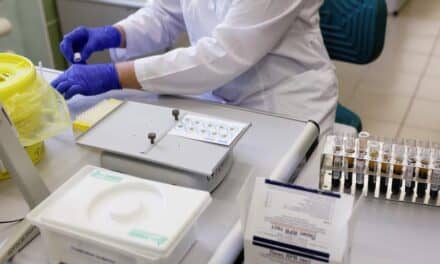NEW YORK (Reuters Health) – Rapid HIV testing in hospital emergency departments (EDs) and at gay pride events can identify individuals who are unaware that they are infected, and these patients can then be directly linked to health and prevention services, two research teams report in the Morbidity and Mortality Weekly Report for June 22.
Dr. E. E. Telzak, from the Bronx Lebanon Hospital Center in New York, and colleagues report the results of three CDC demonstration projects conducted in EDs of hospitals in New York City, Los Angeles, and Oakland, California, between January 2005 and March 2006.
All three sites placed posters and brochures in waiting rooms and registration areas to advertise the availability of free rapid HIV screening on an opt-in basis.
At the Los Angeles and New York sites, testing and counseling were provided by trained HIV counselors, whereas in Oakland, services were provided by ED staff members.
More than 34,600 were offered testing at the three EDs and 19,556 (56.5%) agreed to be tested. Of these individuals 9,365 (47.9%) actually underwent testing. Ninety-seven patients (1%) were diagnosed with HIV infection, and most (n=85) were linked to HIV care and treatment.
While a higher proportion of patients were offered HIV testing at the Oakland site, the number of patients tested was limited by the number of available staff members, according to the CDC group.
Since then, New York and Los Angeles have incorporated the use of dedicated counselors in their EDs, which has increased the number of patients tested.
"A combined approach using dedicated HIV testing personnel in collaboration with existing staff members, might increase testing capacities in EDs, maintain a high rate of acceptance HIV testing, and facilitate implementation of the opt-out testing approach" now recommended by the Centers for Disease Control and Prevention.
In the second report, T. Dowling from the San Francisco Department of Public Health and colleagues describe the success of outreach programs at gay pride events. Between 2004 and 2006, behavioral assessments and rapid HIV testing were conducted at 11 gay pride events attended primarily by men from racial/ethnic minority groups.
Overall, 543 subjects reported that they were HIV-negative or did not know their HIV status. Of the 133 (24%) who were tested, eight (6%) were found to be HIV positive. Four of these eight HIV-positive individuals had a negative test result within the previous year.
In the U.S., among HIV-infected men who have sex with men, approximately half are black or Hispanic, Dowling’s group points out. Their program demonstrates the feasibility of national initiatives to reduce racial/ethnic disparities in HIV infection.




